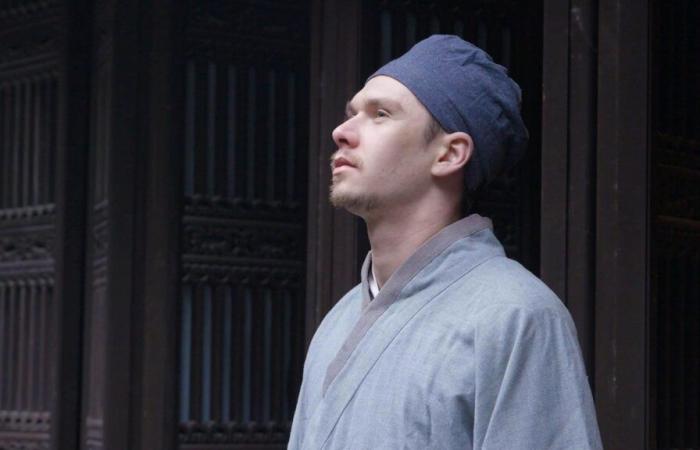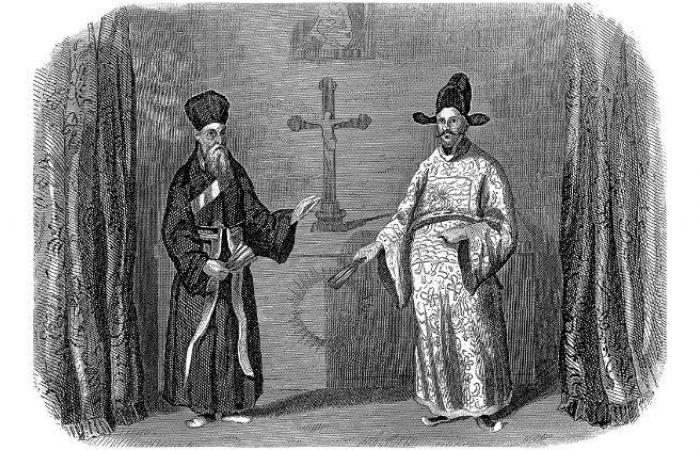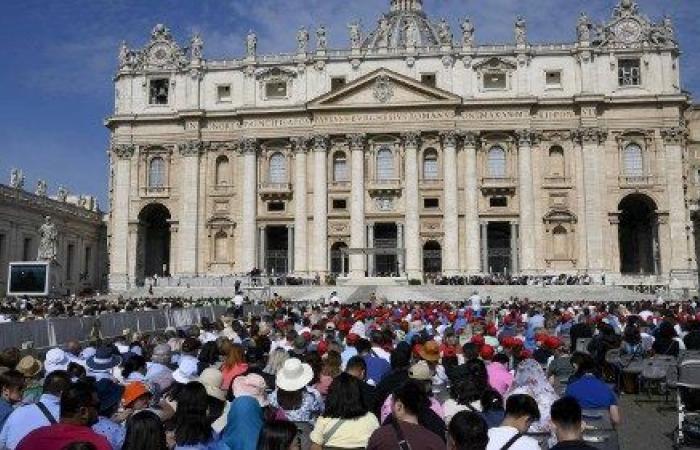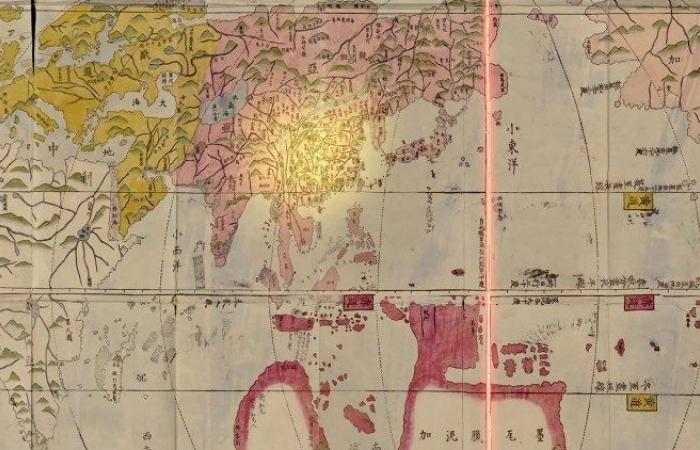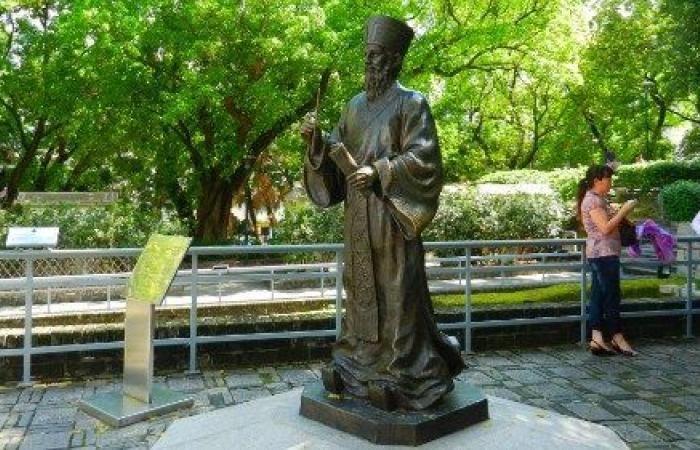Preview in Rome of the Italian version of the television documentary dedicated to the figure of the first Jesuit to enter China, produced by the Kuangchi Program Service of the Society of Jesus in close collaboration with China Central TV.
Fausta Speranza – Vatican City
An audience of a billion people for a missionary from four centuries ago. In China, in a short time, the docu-film A Western Confucian in the Eastdedicated to the extraordinary figure of Matteo Ricci, received a very favorable reception. It is a production of the Kuangchi Program Service (Kps) of the Jesuits, in close collaboration with China Central TV (Cctv), the largest television channel in the world. After the success of the Chinese-language work produced in 2020, the Italian version of the television documentary in four parts, dedicated to the Jesuit born in Macerata on October 6, 1552 and died in Beijing on May 11, 1610, is presented on the evening of Thursday November 14 at the Teatro Quirino in central Rome. It is the result of exclusive filming in China, Macau, India, Italy, Portugal and in the archives of the Curia where original documents were filmed.
Father Matteo Ricci, from a noble family, quickly chose to enter the Society of Jesus and turn to Asia. He followed his missionary impulse without denying his talents as a mathematician, cartographer or sinologist, even building bridges of dialogue between his different subjects of study.
After a few years in India, he managed to land in China at the time of the Ming dynasty and received from the mandarins the honorary title of “Confucian scholar of the great West”.
Recognize local values
At the heart of its commitment is the choice to “identify the seeds of goodness that the Spirit always gives to all people and all cultures, thus creating a concrete fraternity“. It is with these words that Father Massimo Nevola, national assistant of the Ignatian lay association Comunità di Vita Cristiana, evokes one of the aspects that make the teaching of Matteo Ricci valuable: “The ability to live in an attitude of respectful dialogue and broad-mindedness which allows one to recognize the values of a culture, to adapt the Gospel to local needs, then to announce the fullness and splendor of the Cross and of the mercy of Christ».
Portrait of Matteo Ricci.
Talking about the Gospel
This is what we call inculturation with a modern term, and which Father Ricci knew how to live beyond definitions. Father Nevola gives a concrete example: Father Ricci, arriving in China, chose to recognize the meaning and value of the “cult of the dead”, the fruit of the teaching of Confucianism, before speaking about the Gospel.
A legacy to reread
Recognized Servant of God by Saint John Paul II on April 19, 1984, Father Ricci was declared Venerable by Pope Francis on December 17, 2022. Without denying the exceptional memory which always accompanied the Jesuit, at his death, despite the fruits that he had collected, recalls Father Nevola, his methodologies were strongly questioned and criticized by religious scholars, in particular representatives of other orders such as the Dominicans or Franciscans, but not only. These scholars were convinced that Ricci's approach could not suffice theologically. It is a story of dialectic within the Church, which “at the time was often marked by fears and rivalries“, underlines Father Nevola, “but which is very fruitful if we open ourselves to the thoughts of others in the spirit that Pope Francis taught us to call synodality “. The first important step to reevaluate the approach to “Chinese rites” came from Pius XII, as Father Nevola points out, the decisive turning point on these issues was then imprinted by the Second Vatican Council.
Whatever the case, the story of Matteo Ricci is also the story of the fathers who inspired him, of the theological culture of his time, of the forty precious companions in mission, study and life who inspired him. accompanied him, as well as the land and the people who welcomed him on a difficult and living path.
All this appears in the documentary film where the “eclectic figure» by Matteo Ricci emerges in all its exceptionality. “He wasn't really a scientistunderlines Father Nevola, but he had extraordinary study skills which led him in three years to hold a scholarly conversation in the local language and above all to write treatises in Chinese and to publish dictionaries..
Matteo Ricci also produced the first world map that placed China, and not the Western world, at the center. “It is a symbol of his fantastic work of exalting local knowledge, which allowed him to make a valuable contribution to this knowledge, by teaching Euclidean geometry and many other things. ».
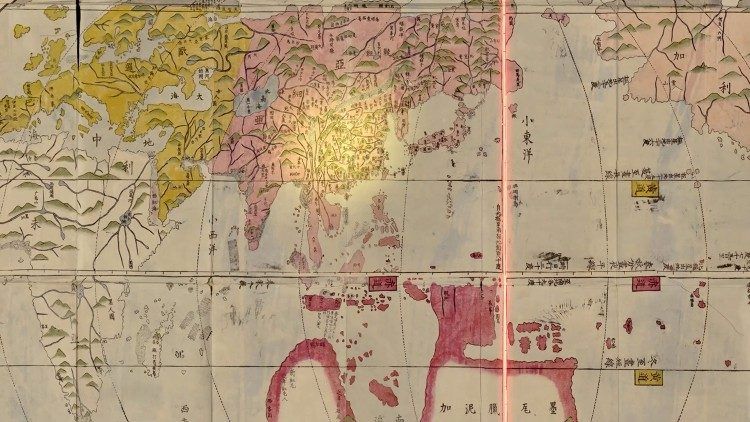
One of Matteo Ricci's maps.
A production that comes from far away
The journey that led to the documentary is also exceptional. Kps is a television production company founded in 1958 by an American priest, Phillip Bourret, who started with a radio in a cabin in the 1950s and later embarked on the pioneering adventure of television. Kps is called Guangqi She (Guangqi Company) in Chinese and takes its name from Paul Xu Guangqi (1562-1633), the Chinese friend of Matteo Ricci.
Kps, in collaboration with Beijing's Jiangsu Broadcasting Corporation (Jbc), has already produced other interesting documentaries broadcast by China Central Television: the four-part series “Paul Xu Guangqi: a Chinese at different times”; the two-part series “Adam Schall von Bell: in the service of emperors», on the figure of the German Jesuit, tutor of the young emperor Shunzhi; the four-part series “Giuseppe Castiglione: imperial painter, humble servant, Milanese Jesuit artist“. And the commitment continues: the production on the Spanish Jesuit Diego de Pantoja, missionary companion of Matteo Ricci, will be implemented.
To chronicle the lives of these Jesuit scholars, artists and scientists who made remarkable contributions to China's cultural and scientific progress and the growth of the nascent Chinese Catholic Church, local talents collaborated with international scholars.
Teaching humanity and beauty
«Even today, a country like Italy, which absolutely cannot compete with Chinese power in terms of economic or technological development, can continue to offer China its contribution in terms of humanity, beauty, meaning. of all things and spirituality in the wake of the great Italian saints», concludes Father Nevola confidently.

